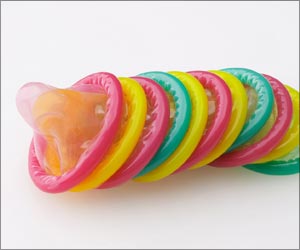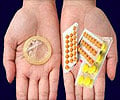
‘With so many birth control options available, choosing a most suitable form can be confusing. So it is a good idea to talk to a doctor and understand what will work best.’
Tweet it Now
This can be achieved through access to effective and safe birth control and contraception options. While the term birth control is used in a broader sense to prevent unwanted pregnancies, contraception refers to the methods and devices that are adopted for birth control. Using these can also reduce the risk of acquiring many sexually transmitted diseases (STDs). Dr Nandita Palshetkar, Medical Director, Bloom IVFGroup, gives some safe birth control and contraception options one can adopt. Male and female condom: The male condom is made of thin latex. It is put over the penis to stop the sperm from entering the vagina. Condoms can offer protection against STDs and do not need any advance preparation for use. These do not have any side effects as well. However, it is important to learn how to use a condom to avoid the risk of it slipping off. On the other hand, a female condom is made of thin polyurethane. It lines the vagina to stop the sperm from entering. The advantages are similar to that of a male condom.
Progesterone injection: This is a reversible contraception method which is effective for about 13 weeks. This injection can also be used by breastfeeding mothers. This injection is also said to offer protection from pelvic inflammatory disease and womb cancer in women.
Intrauterine device (IUD): This is a small plastic and copper device inserted into the uterus and a long-acting reversible contraception. While it can stay for about 10 years, it can also be removed when needed by a health care professional. Once an IUD has been inserted, there is no need to take any other form of contraceptive. However, one must be careful in the first few days and follow the doctor's instructions to avoid the chances of an infection.
Contraceptive patch: This is a more recent form of contraception wherea small patch is stuck to the skin, which releases estrogen and progesterone. This helps in stopping ovulation. However, it can cause some temporary side effects such as headache and nausea and is not advised for women who smoke or for those above the age of 35.
Advertisement
Natural family planning/; Natural family planning is done through an understanding of the fertile and infertile times of during a menstrual cycle. It can be effective if the calculation is done accurately. The best part about this method is that it is devoid of any hormones and does not require any device. However, it is important to keep a daily record.
Advertisement
Vasectomy: Vasectomy or male sterilization is a permanent contraception method for men. In this method, a surgery is done to cut, seal or ties the tubes that carry sperm from the testicles to the man's penis. There may be slight discomfort which will go away in few days. Therefore, it is imperative to follow safe and effective contraceptive advice to avoid unwanted pregnancy and enjoy a sex life devoid of worries.
While there is no one-size-fits-all when it comes to choosing a contraceptive method, there are some parameters such as the number of existing children, the desire to have more children, health of the couple, age, frequency of intercourse, and chances of infection which should be considered. With so many available options, it is a good idea to talk to a doctor and understand what will work best for you depending on these associated factors. This way, the information will come from a reliable source and help you in making an informed decision. When it comes to health, only facts will work.
Source-ANI












